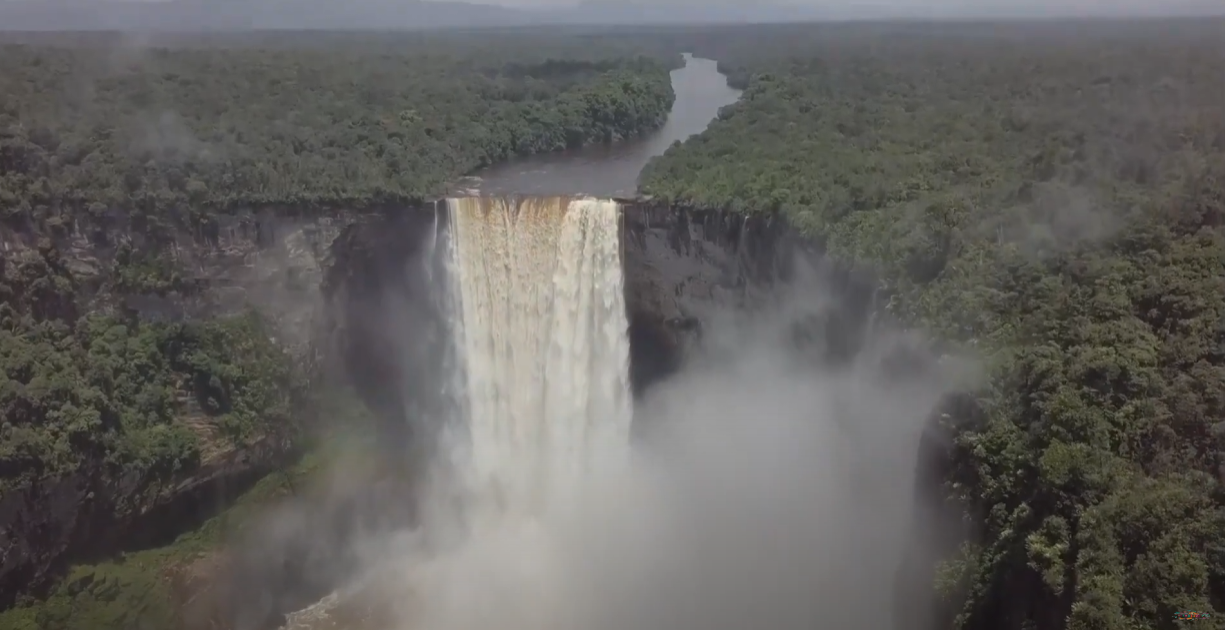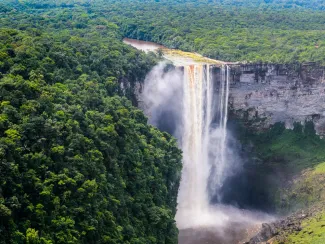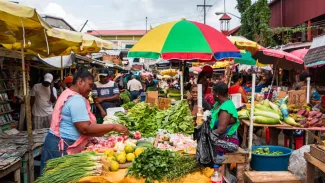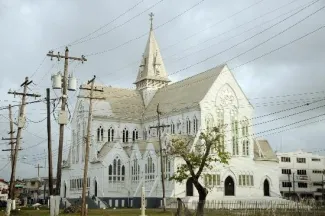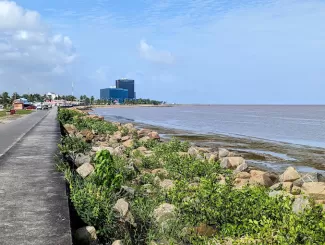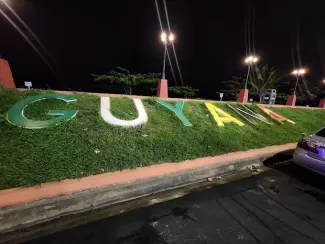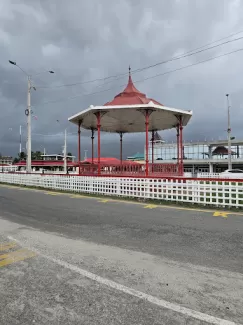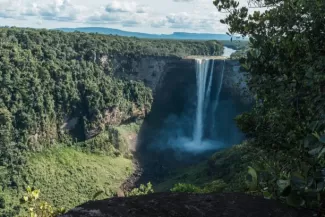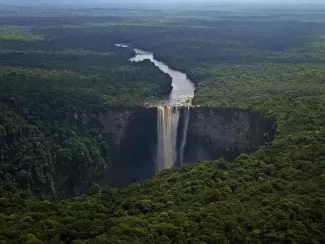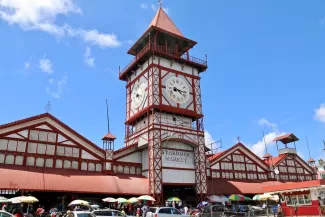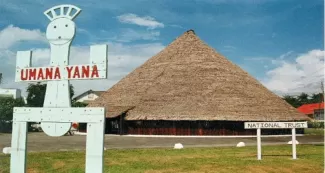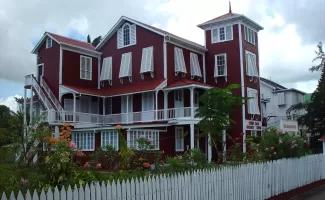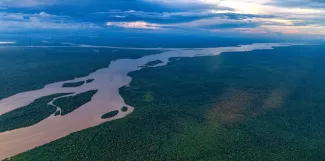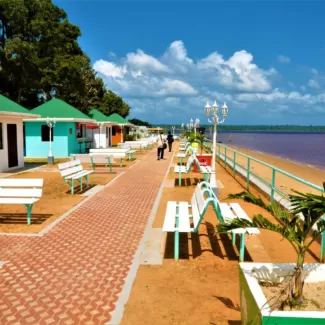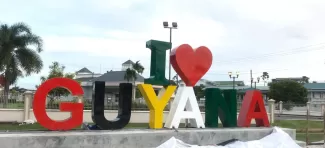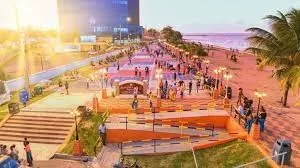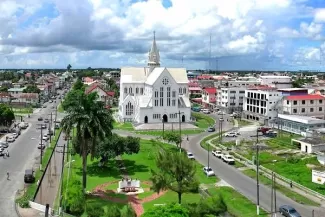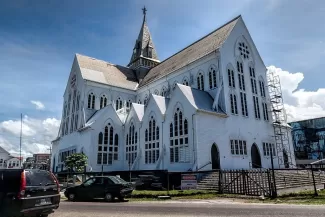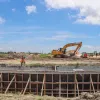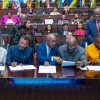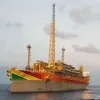1580 - The Dutch gain a foothold and set up trading posts. From 1620, the Dutch West India Company imports African slaves to work on its sugar plantations.
infoguyana.caracas@mission.gov.gy | Working Hours: 8:30 am to 3:30 pm | tel:+58 424 1264347
Guyana Highlights
Some of our History
Welcome to the official website of the Embassy of the Cooperative Republic of Guyana in Caracas, Venezuela. Established in 1968 with the arrival of our first Ambassador, the Embassy has proudly represented the interests of Guyana and fostered cordial relations between our two nations for over five decades. Our commitment to diplomacy and cooperation has strengthened ties, promoting mutual respect and understanding.
Our website offers a seamless and user-friendly experience, designed to keep you informed about the latest developments in Guyana and within our vibrant diaspora community in Venezuela. Here, you can find valuable resources, including historical insights into the enduring friendship between Guyana and Venezuela, as well as information on our community outreach programs. We invite groups and individuals to register with us, ensuring that we remain connected and responsive to your needs.
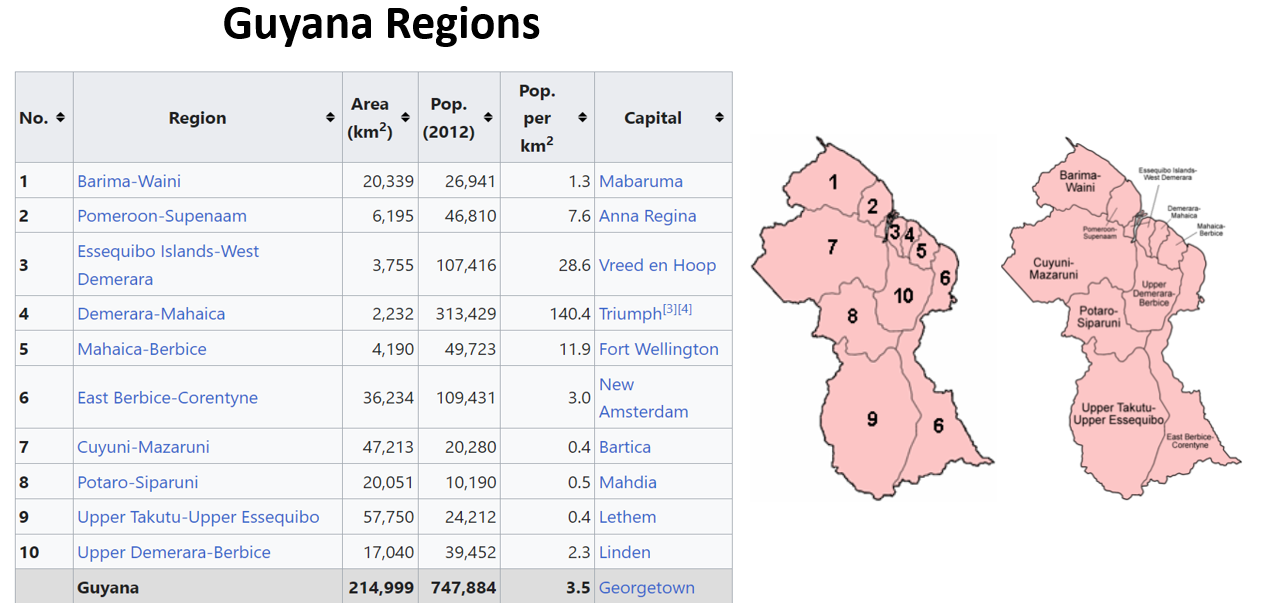
Guyana Timeline
-
1780-1813 - Guyana changes hands between the Dutch, French and British.
1780-1813 -
1814 - Britain occupies Guyana during the Napoleonic Wars and later makes it a the Colony of British Guiana.
1814 -
1834 - The abolition of slavery leads to indentured workers being brought in from India.
1834 -
1889 - Venezuela lays claims to two-thirds of Guyana west of the Essequibo river, but international arbitration rules in favour of Guyana in 1899.
1889 -
The Arbitral Award of Paris. The arbitration tribunal awarded the majority of the disputed territory to British Guiana. Ignacio Andrade, then President of Venezuela, and Severo Mallet-Prevost, Venezuela's legal representative, expressed dissatisfaction with the ruling, citing potential biases and irregularities in the arbitration process.
1899 -
1999: Venezuelan President Hugo Chávez and Foreign Minister José Vicente Rangel sought to strengthen regional ties while keeping the dispute at a diplomatic level. Chávez frequently mentioned, "The Esequibo is ours, but we seek a peaceful resolution through dialogue and understanding."
2010: When Guyana awarded oil exploration licenses in the disputed maritime zone, Venezuelan Foreign Minister Nicolás Maduro condemned the move, stating… See More
1999-2010 -
Guyanese Foreign Minister Carolyn Rodrigues-Birkett filed an application with the International Court of Justice (ICJ) in 2013, arguing that the court should validate the 1899 Arbitral Award. Venezuelan Foreign Minister Elías Jaua responded, insisting that "the ICJ lacks jurisdiction, as the Geneva Agreement mandates bilateral negotiations, not judicial intervention."
2013 -
2015 - Guyana's multiracial opposition coalition led by David Granger wins the general election, ending 23 years of rule by the Indo-Guyanese PPP party. The PPP returns to power five years later.
In May 2015, after ExxonMobil discovered significant oil reserves in the contested maritime zone, Venezuelan Foreign Minister Delcy Rodríguez issued a strong statement, declaring, "Venezuela will defend its sovereign rights… See More2015 -
In 2018, the ICJ confirmed its jurisdiction over the case. Venezuelan Foreign Minister Jorge Arreaza maintained Venezuela's opposition, stating, "We stand firm in our belief that this dispute must be resolved through direct negotiations, not imposed rulings." Guyanese Foreign Minister Carl Greenidge welcomed the ICJ's decision, calling it "a victory for international law and the rule of justice."
2018 -
2019 - Drilling begins at major offshore oil deposits identified by ExxonMobil.
2019 -
2020 - While a commission examines the New River Triangle territory between the two countries—a boundary dispute that dates back to the 19th century—Presidents Ali of Guyana and Santokhi of Suriname affirm the two nations' intention to forward with economic cooperation and development.
2020 -
On December 18, 2020, the ICJ ruled in favor of hearing the case, a decision lauded by Guyanese Foreign Minister Hugh Todd as "an important step towards a definitive resolution." Venezuelan Foreign Minister Jorge Arreaza criticized the ruling, stating, "This is a setback for bilateral diplomacy and a violation of the spirit of the Geneva Agreement."
2021 -
2022: Both nations submitted detailed arguments to the ICJ. Venezuelan Foreign Minister Yván Gil reiterated Venezuela’s stance that the 1899 Arbitral Award was invalid, while Guyanese Foreign Minister Hugh Todd continued to defend the award's legitimacy.December 3, 2023: Esequibo Referendum. Venezuela held a controversial referendum regarding the Esequibo, in which over 90% of voters supported the reclamation of the territory.… See More
2022-2023 -
2023 - Venezuela's concerns that the International Court of Justice is not the appropriate body to adjudicate on the boundary dispute over the oil-rich western region of Guyana have been rejected. The Court of Justice says it will now adjudicate the matter.
A recent referendum in Venezuela revealed that the majority of voters support the nation's claim to Essequibo and supported the creation of a new Venezuelan state… See More2023

